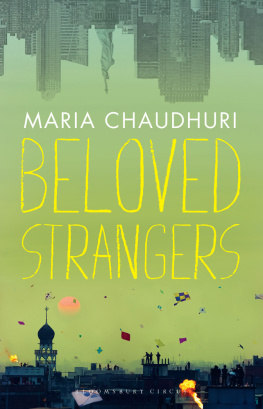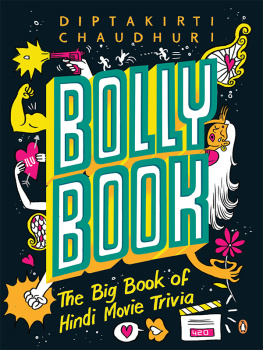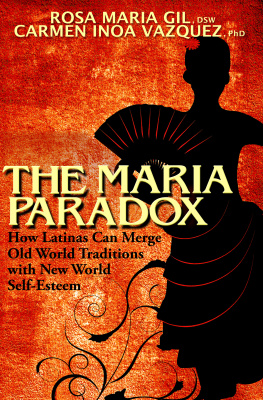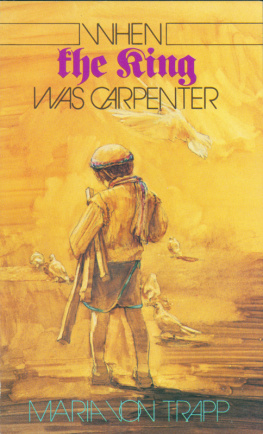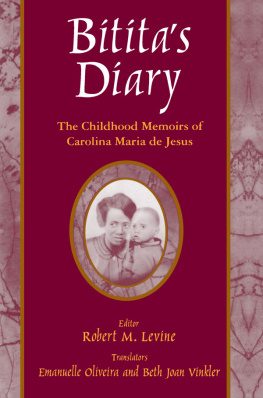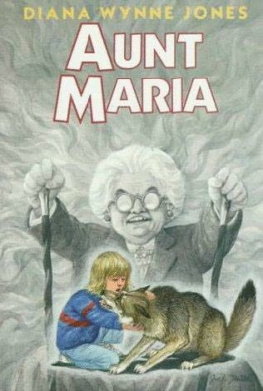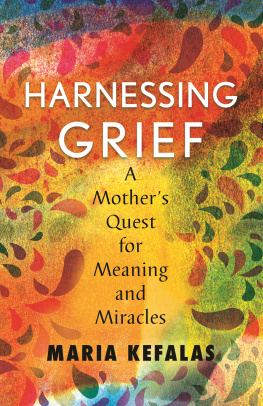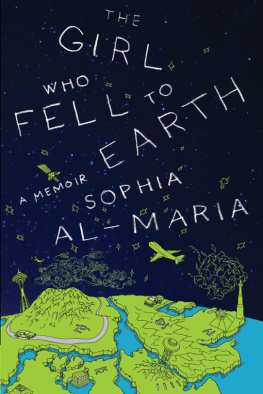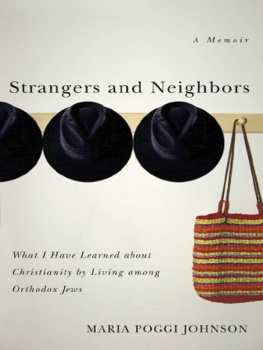I want to thank my teacher Rebecca Brown, for guiding me with such love when I first conceived this book. She never lost faith in my vision and never failed to make me feel special as I shared the pages with her. My heartfelt thanks to Kazi Anis Ahmed for pushing me beyond my comfort zone, for cheering me on, for answering all kinds of questions and for being such an invaluable friend over the years. I am truly grateful to Masud Khan Shujon for being unduly generous with his time and for providing me with so much insight when I really needed it. And last, but not least, I cannot find the words to thank my editor Diya Kar Hazra, who, with her kindness, patience and unbelievable warmth and clarity, helped this work come to fruition.
Maria Chaudhuri was born and raised in Bangladesh. She has a Bachelor of Arts in Philosophy and Religion from Mount Holyoke College, Massachusetts, and an MFA in Creative Writing from Goddard College, Vermont. Maria Chaudhuris essays, features and short stories have been published in various collections, journals and literary magazines. She lives in Hong Kong.
The room is square and semi-dark; heavy curtains block the sunlight. There are two single beds joined together to make one large double bed where I sleep with my sisters. Two wooden dressers, one black, one brown, stand on either side of the bed. Through the crack in the door I can see the leg of my new Barbie on top of the brown dresser. I also see my mother sitting on the bed with her harmonium, flipping through sheets of music. Her guru sits across from her, cross-legged, humming and tapping his fingers on the polished surface of the instrument. I want my doll but I dare not step inside the room. When my mother practises her music the world is her enemy.
Until she was six years old, my mother lived in the tiny, sleepy town of Comilla, about a hundred kilometres south-east of Dhaka. Then her father died unexpectedly from kidney failure at the age of forty, and his passing left my grandmother a widow at twenty-four. My grandmother moved into her brothers family with three small children of whom Mother was the second. From then on, they moved from one town to another due to the nature of Mothers maternal uncles work.
Mother spoke of her uncle with a rare fondness. He had loved her like a father, pampered her more than his own children and made sure that, despite the frequent relocations, Mother was not deprived of what pleased her most: music. Wherever they went, he found a music teacher for her, and by the time she was a teenager, she had won a number of trophies and certificates for her musical talent at school and other local functions. At the end of high school, when most of her friends left their small town to go to college in the big city, my mother didnt care. She was absorbed in her music, ecstatic that the local radio stations had started to schedule her for regular appearances.
The first time it was arranged for my father to see my mother as a prospective bride was during one of her weekly radio programmes. The two families thought it best that my father should see her from afar, without her knowledge. Meeting face to face, even if chaperoned, was not considered proper. So my father turned up at the radio station, stood outside a glass-enclosed studio and watched a skinny nineteen-year-old singing in a voice so mesmerising that he forgot why he was there.
My father went home to tell everyone he had found his bride. My mother went home, completely unaware that her song had led her to her future husband. Though Mother knew she would have to consider marriage sooner or later, given her mothers exhaustive search for a groom, it did not stop her from feeling a jolt of panic when my father, eager and smitten, asked for her hand. She was hesitant to leave the uncomplicated rhythm of her life where music was her only partner, but how much longer could she continue to refuse her suitors? Had she chosen to refuse, however, deciding to pursue music instead of marriage, her uncle and grandmother promised to stand by her. But Mother agreed to the match with an unexpected ferocity. Im ready, she declared, start the preparations right away. I presume she wanted to put an end to the constant reminder that she was her widowed mothers last burden.
Once she gave her consent, my mother refused to discuss the matter any further, letting her family busy themselves with the minutiae of the wedding. Finding her in bed in the middle of the day, while the house bustled with wedding activity, her grandmother approached her quietly.
Are you well, dear? she asked Mother.
Yes I am.
Dont you at least want to know what he looks like?
Whats the point? Im still going to marry him, said Mother.
You dont have to marry him if you dont want to.
It doesnt matter now.
Dont say that!
Fine, tell me what he looks like, my mother said in a resigned voice.
Her grandmother brightened. Oh hes very handsome, more fair-skinned than any man Ive seen. His skin is so light you can see the veins underneath. Such white-white children youll have!
The faintest smile flitted across my mothers face. Her grandmother sighed and placed a gentle hand on her granddaughters head.
The wedding took place in Comilla, and on the night of the wedding, Ismail the servant boy fell into a cauldron of boiling milk and went half insane. Later he confided that the djinns had come to him when everyone was busy with the festivities. They came in the guise of three exquisite and identical young women. In the smoky kitchen, a horrified Ismail recognised their unblinking stares and backed away from them until he fell into the drum of scalding milk. He never heard the message they had come to deliver. The sounds of firecrackers and wedding music drowned his screams for help.
That same night, my father was to take his new bride and make the three-hour journey back to his Dhaka home. He had instructed his best friend to convert his small bachelor pad into a bridal suite, replete with flowers, candles and a heavy lace bedspread. A table was laden with trays of multi-coloured sweets and tall pitchers of almond and coconut milk. His friend waited to receive the exhausted bride and groom. But once the bride and groom were on their way, the driver turned around and announced that he was taking them to my fathers sisters house.
Why? asked my bewildered father.
It is your sisters order, the driver shrugged.
My father opened his mouth to say something then closed it again. His older sister was not someone he could easily disobey. They reached her house well after midnight. Lifting the pleats of her heavy red sari off her dainty feet, my mother wearily made her way up the dark, cramped staircase. The maid sleepily warmed up some leftover fish curry from the night before. After dinner, my parents spent their wedding night in a tiny, airless room that had been hurriedly cleared for them, while, in another part of the city, a fragrant room with a dreamy white bed glowed softly until all the candles burned out.
In 1971, a year after their wedding, my parents lived in a bungalow on the top of a hill in Chittagong, where my father worked at the head office of the Bangladesh Tobacco Company. My mother stayed at home with one-year-old Naveen, an old Nepali ayah and Harun the cook. The garden was the best part of their sprawling colonial-style bungalow. Huge red dahlias and bushes of wild tulips sprung robustly out of the mountain earth. When the midday sun grew softer, the ayah took Naveen out in a stroller for long walks. My mother sat in the secluded garden and sipped cup after cup of tea. But the nights were bad. The sound of gunfire, sirens and hand grenades pierced the dark. Every once in a while, screams floated up the lonely mountain roads. Or did she imagine them? Once my mother woke up in the middle of the night and her heart caught in her throat at the sight of a malevolent face pressed against the windowpane. In the morning she found a bird, half-eaten and caked in dried blood, just outside her window and realised it had only been a fox. She must have been lonely, in that strange city, away from her family, in the middle of the war.
Next page
